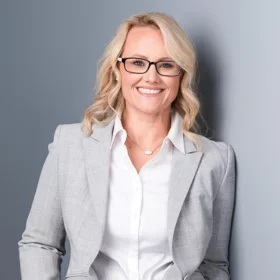Devo Probol completed a Master's Degree in Strategic Communication in 2020. Since obtaining her degree, she joined the University of Pennsylvania as a Fellow in the Center on Digital Culture and Society. As a Fellow, Devo explores the political and cultural consequences of digital social movements on society, leveraging her degree to understand these nuanced relationships. In the following Q&A, Devo shares advice for incoming Strategic Communication students, what initially attracted her to the interdisciplinary field, and how her degree has impacted her career thus far.
What drew you to a career in the communications industry?
I was initially drawn to communication because I'm interested in what people think, how and why they act on their thoughts, and the ways they encourage others towards their position. Communication aims to understand how we transfer knowledge, culture, ideas... basically, anything worth (or not worth) knowing!
As an individual, I truly believe that communication has the power to make changes desperately needed in our society, which is why I chose to pursue a career studying communication phenomenon. As an academic, I spend much of my time thinking about how groups construct identity by transferring information amongst each other, particularly as they digitally negotiate their underlying value system to achieve their desired goals.
What industry trends are most important for students entering this field to be aware of?
New students should be aware of the emergence of shareholder activism. Shareholder activism is a type of activism that is primarily concerned with influencing an organization's values and decision-making processes by leveraging collective capital.
The goal of these activist investors is to align the organization's activities, operations, and investments in a way that progresses our society. Some recent examples include the meme stock movement, purchasing from Black-owned brands, defunding organizations that make campaign contributions to particular political candidates, etc.
Given its rise in recent years, I think students who study strategic communication will need to consider the desires of these influential groups when defining and reaching key audiences for their communication campaigns.
Although the Master’s program is geared toward professionals, it armed me with the skills to understand the nuanced relationship between basic research and applied research.
As an alumna of the program, how has a Masters in Strategic Communication impacted your career?
Earning an M.S. in Strategic Communication at Columbia has impacted me significantly! Before returning to academia full-time, I spent several years working in the U.S. national security apparatus within the international security and foreign policy realms. It was there that many opportunities were afforded to me by virtue of the expertise I gained through my participation in the Master's program, including having the chance to work on a team responsible for overhauling the communication processes of the U.S. military in the Asia-Pacific region.
In my current role as a Fellow inside the Center on Digital Culture and Society within the Annenberg School for Communication, I continue to reap the benefits of my graduate degree. Although the Master’s program is geared toward professionals, it armed me with the skills to understand the nuanced relationship between basic research and applied research.
Moreover, having insider knowledge into the processes communicators leverage in the real world to create lasting change makes me a better researcher; whether studying tactical innovation, political process theory, or collective identity construction, the understanding I acquired as a graduate student within the M.S. in Strategic Communication at Columbia has given me a sound foundation to launch from in all my professional endeavors.
What advice would you offer to someone interested in communications but unsure of their niche within the industry?
Communication is a vast, interdisciplinary field that is genuinely applicable to anything! I think that's one of my favorite things about it - as humans, we are natural communicators. What we say and what we don't say ultimately says something. Studying communication offers flexibility while simultaneously offering depth in terms of functional expertise.
For students new to the field, I would impart this advice: you don't have to know yet what area of communication you're going to become an expert in; you just have to be open to the possibilities and willing to be reflective as you encounter ways to deploy your newly acquired skill set.


